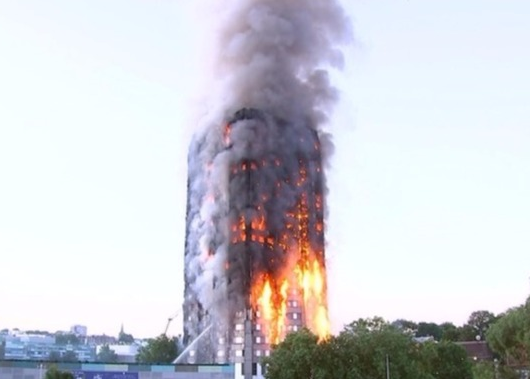
Socialists are generally opposed to the “free market” because of the huge levels of inequality that it causes. It is the system that makes Dangote and people like him incredibly rich when so many Nigerians wallow in poverty. This is not fair. Another key problem with capitalism is the freedom it gives to individuals to make profits without a care for the general public’s health.
We are told that entrepreneurs should be given the freedom to operate and that this will improve the standard of living of everybody. But in practice, time and time again, this freedom has led to disastrous consequences for millions of people.
In the mid-19th century Frederick Engels (a friend of Karl Marx) wrote a book on The Condition of the Working Class in England. This described the conditions of the poor in Manchester, then at the heart of the industrial revolution. Engels was horrified by the child labour, environmental damage, low wages, bad conditions, poor health and death rates.
The collective struggles of the organised working class helped to ensure that many of these conditions were improved over the last 150 years or so, particularly in the advanced capitalist economies. But many people living in the major cities of Nigeria and other African countries today would still recognise Engel’s descriptions.
Poor sanitation meant that diseases like cholera were common. But private industry also emitted many poisonous chemicals like arsenic, lead and mercury. Lead had many uses. It was used on roofs, for water pipes, in paints and in petrol.
Gradually the effects became more and more obvious, although the dangers were known since ancient times. The League of Nations eventually banned lead in paint in the early 20th century and many countries phased out its use in petrol in the 1980s. But in 2013 lead was still believed to have resulted in 853,000 deaths, especially in ‘developing countries’.
Asbestos became widely used in the 19th century. It was widely used in electrical and building insulation. Asbestos use continued to grow through most of the 20th century despite the health hazards and cancer risks being known from the early years of the century. Public knowledge of the health hazards of asbestos dust and trade union action led to the outlawing of asbestos in mainstream construction and fireproofing in most countries.
In Britain, asbestos use was not banned in buildings until 2000. It is estimated that 5,000 people a year still die from asbestos in Britain – more than are killed on the roads. The asbestos industry in the US and other countries has been blamed for concealing the bad health effects – the huge profits they made were the temptation. Approximately 100,000 people in the United States have died, or are terminally ill, from asbestos exposure only related to ship building.
Asbestos remains a major health hazard in many countries. Due to its widespread use, it may be found in many buildings. It should be removed only under carefully controlled conditions to prevent the release of cancerous fibres. Banning asbestos use is not enough, trade union action is necessary to ensure that when it is located it is removed safely.
Tobacco is an extremely dangerous and addictive drug. It is estimated that smoking is the cause of about 5 million deaths per year or the equivalent of one Jumbo Jet crashing with no survivors every hour of the day and night. This has been known for the last fifty or more years, but tobacco is still legal! Way back in 1950, Richard Doll published research in the British Medical Journal showing a close link between smoking and lung cancer. But this was ignored by the tobacco industry and they went further to protect their profits.
A World Health Organisation report published in 2000 said the tobacco industry had been waging a secret war against the organisation’s efforts to combat smoking!
Air pollution now kills 3.3 million people prematurely each year – more than HIV, malaria and influenza combined – with the emissions from diesel engines amongst the worst culprits. Not only do the vehicle manufacturers continue to produce diesel powered cars, but in 2015 Volkswagen admitted it had been cheating on its emissions tests.
More recently, other car manufacturers including the French firms Peugeot, Citroën and Renault are also being investigated for faking their tests and so emitting more dangerous fumes than claimed. 97% of diesel cars made since 2011 exceed the European emission standards.
Polyethylene or polyethene is the most common plastic. The annual global production is around 80 million tonnes. But until very recently there was no known way for this plastic to be biodegraded, so it was expected to continue to mount up and spread around the world. Even the most remote beaches in the world have been found to have millions of small particles of plastic. Over half the world’s whales and dolphins have ingested plastic.
Many companies spend millions promoting themselves as eco-conscious, but Coca-Cola sells over 100 billion single-use plastic bottles every year. That is why everywhere we look in towns and cities we see plastic bags and plastic bottles.
The capitalist economic system promotes the free market, and argues against state regulation. As these examples show, the result is that millions of people die needlessly each year and our environment is destroyed. We need a society where a small minority of people do not have the freedom to grow rich at the cost of the majority of society. We need a society where careful planning and consideration for everyone and the wider environment is built into its core – that is what we call socialism.
by Drew Povey








